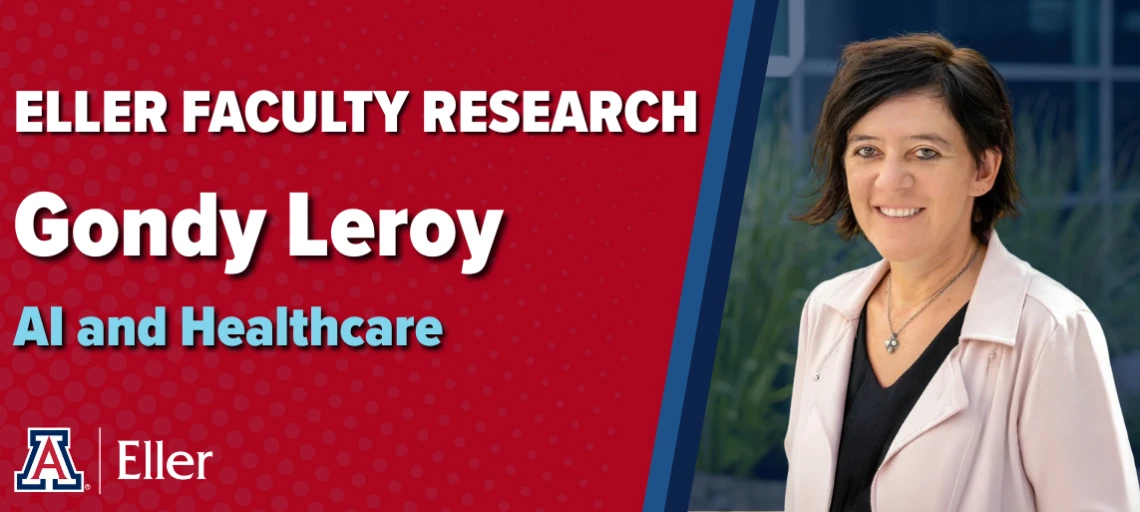Harnessing AI to Transform Healthcare: Gondy Leroy Leads Groundbreaking Research

Associate Dean for Research, Research Director for the Center for Management Innovations in Healthcare, and Professor of Management Information Systems in the Eller College of Management, Gondy Leroy, is leading two groundbreaking projects that leverage artificial intelligence to advance healthcare.
The first project, supported by a $1.5 million health information technology grant from the National Institute of Mental Health, is designed to help clinicians, especially those who are not specialists, identify children at risk for autism spectrum disorder at an earlier stage.
“The earlier we can make a diagnosis, the more children benefit from therapy,” Leroy explains. The study focuses on training AI systems to recognize specific behavioral patterns and match them with established clinical criteria—ultimately making earlier intervention both possible and effective. Initially focused on electronic health records, the team is expanding its impact by working with parental descriptions for diagnosing and using privacy-preserving avatar versions of video.
The second project tackles another critical challenge: health literacy. Funded by the National Library of Medicine with a $1.4M grant, the group combines traditional tools and AI to make medical information easier to understand by reading or listening to audio.
Unlike traditional resources designed for experts, Leroy’s team is developing tools that work for everyone—from healthcare providers to everyday patients—so that people can make more informed decisions about their health.
The project aims to set new standards for how audio can be used in healthcare communication, an area where no guidelines exist. By transforming complex medical information into clear, accessible audio, the tool meets patients where they are, bridging the gap between information and understanding.The group provides is a free online platform that generates simplified text and audioresources using best practices.
These studies highlight Leroy’s vision for how AI can be used not just as a technological advancement, but as a tool for greater accessibility in healthcare. By focusing on earlier diagnoses and more inclusive communication, her work has the potential to transform how clinicians and patients alike engage with critical health information—bringing care that is smarter, faster, and more human-centered

